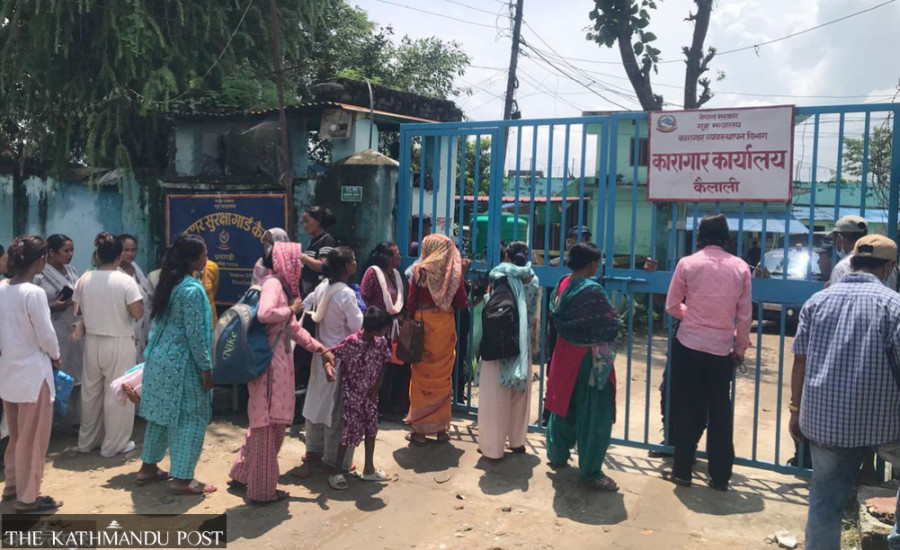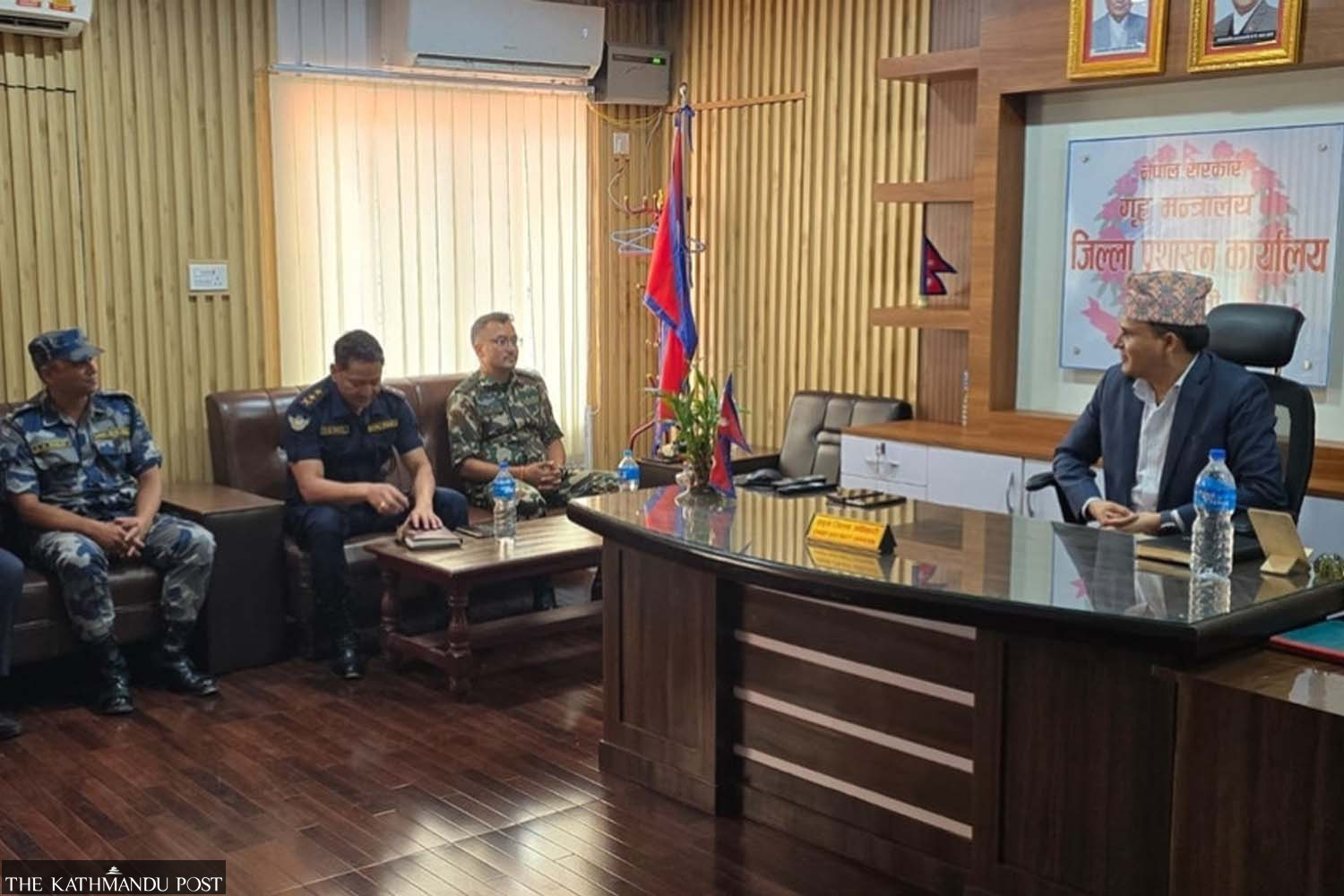National
Violent clashes continue in Nepal’s overcrowded prisons
Selection of ‘prison leaders’ from among inmates cited as another factor making jails an unsafe place.
Purushottam Poudel
A violent clash between rival groups inside the severely overcrowded Kailali District Prison on Friday night has left one inmate dead and 44 injured.
This incident lays bare problems in Nepal’s prison management, a system rigged by political interference, illicit incomes, and inefficient administration.
The clash in Kailali resulted in the death of Bharat Chaudhary from Dhangadhi Sub-metropolitan City-4. The injured are being treated at Seti Provincial Hospital.
Following the incident, a large number of police personnel were deployed to Kailali Prison in Dhangadhi to take the situation under control.
Deputy Superintendent Raj Kumar Singh, also the spokesperson for Kailali Police, said order had been restored in the prison.
“We have deployed 50 personnel inside the prison premises to maintain normalcy,” he said. “Relatives of the inmates have been visiting since the incident, and we are also managing those meetings.”
The clash between inmates had severely injured Chaudhary, who died in hospital on Saturday.
Home Minister Ramesh Lekhak later met chiefs of the security agencies in Kathmandu to learn about the Kailali incident.
Two months ago, an inmate had died in the same prison. Following the death of Harish Singh Pali in June, a day after he was jailed, a clash ensued between the deceased’s family members and the local authorities. Pali, who was sent to prison for 10 days on a banking-fraud, died in custody, allegedly from torture, according to his kin, who refused to accept the body.
Nepal Police, however, claimed innocence.
A week ago, inmates, including the prison-appointed leader, were injured in a clash at Bardiya Prison.
Thirteen inmates were injured in a clash between two rival groups at the Siraha district prison in the third week of July.
At least four such incidents of violence have occurred in prisons in the past couple of months, three of them in western Nepal.
Former police officers hold the prison administration responsible for the failure to prevent such incidents. If there is an inmate who could cause problems for the whole jail, such people should be identified and transferred, they said.
A former police officer says prison administrations cannot do so due to political pressure.
“Some inmates might be earning good money in a prison. So they do not want to be transferred and to prevent that, they even use their political connections,” the former officer said.
From operating the prison canteen to taking part in various dubious financial dealings, influential inmates have their hands in many pies, said Hemanta Malla, a former DIG of Nepal Police. “When one group makes the prison a money-making enterprise, other groups naturally resent it, which in turn often leads to violence.”
In the July incident in Siraha Prison, a confrontation broke out between inmates when one group started extorting money from everyone else. There was no action against the offenders even though multiple complaints were filed against them. Earlier, the same group was allegedly involved in the sale of alcohol and drugs. When others retaliated, a violent clash ensued, injuring 13 inmates.

Former DIG Malla says the ‘prison leader’ concept has no rationale and must be scrapped. He said these people engage in illegal activities in prison and invite clashes.
Overcrowding, drug abuse, and violence have long plagued Nepal’s prisons. According to former home secretary Umesh Mainali, incidents of prison violence keep repeating due to rampant drug and alcohol abuse among inmates, along with infrastructure deficiencies.
Mainali, who also served as jail administrator, said that authorities select leaders from among the inmates who are engaged in various dubious activities. They do so in order to manage the jail’s day to day affairs. Mainali holds this group responsible for most clashes.
Nepal’s prisons are in a crisis. Built to house around 16,000 inmates, they are now overcrowded with nearly 30,000 prisoners, stretching the system far beyond its limits. “Overcrowding is one reason for jail clashes,” said Mainali.
Former DIG Malla concurs.
Overcrowding has reached catastrophic levels, with facilities holding between two and five times their intended capacity. Nowhere is this more evident than in Kathmandu Valley, where prisons are bursting with twice their designated occupancy, Mainali said.
Nepal Police Spokesperson Binod Ghimire also blamed overcrowding for prison clashes. Ghimire said it is natural for people with criminal minds to fight among themselves when they are kept in close proximity.
With the capacity for 150, Kailali Prison, the site of Friday’s clashes, houses 680 inmates.
Ghimire, however, says it is necessary to have leaders among prisoners. As police officers do not enter a prison, its administration selects leaders based on set standards.
“These leaders provide inmates with necessary supplies and relay information to police,” Ghimire argued. “Such a system exists everywhere in the world.”




 18.12°C Kathmandu
18.12°C Kathmandu














